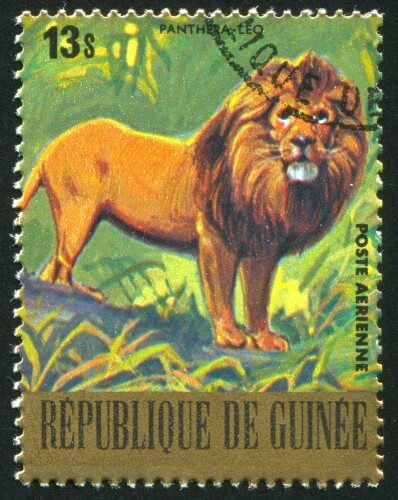According to the report, the lions in West Africa are only found in one percent of the areas that were their home in the past. Most of the areas have been converted to agricultural and other uses that do not allow the existence of lions.

Anyone who is close to nature, anyone who watches nature movies and anyone who has visited African reserves knows that one of the most valued experiences is watching lions while they are hunting, eating or what is more common - resting.
The tour operators refer to the lion as one of the "big five" and such a trip in which the travelers did not see lions is considered a "failure" by the tour operators. Lions are a magnet for tourists and as such are also an important economic factor. In addition to this, for many Africans lions are symbols of pride and as such are used as a symbol in the flags of many countries.
However, if necessary steps and actions are not taken in the coming years, all the above sentences will not be true. According to a survey conducted by the Panthera organization and published in PLOS One, the "failures" will become more and more common, especially in West African countries.
Not only will it be difficult to see lions, but the forecast is that in the coming years, the last lions will disappear or become extinct in more than 15 West African countries. The lions are genetically different from their brothers in other parts of Africa. At the end of a survey that lasted for about six years and stretched from Senegal to Nigeria, the surveyors describe the situation as "catastrophic", since about 250 lions of reproductive age remained in the wild.
According to the report, the lions are only in one percent of the areas that were their home in the past. Most of the areas have been converted to agricultural use (mainly oil palm plantations, cotton areas and food crops) and other uses that do not allow the existence of the lions.
As a result, members of the Panthera organization call to declare West African lions as a species in serious and immediate danger of extinction. Although most of the surveyed areas were declared reserves, the reviewers claim that "these are reserves on paper with no management, no supervision and no conservation or guarding activities. As a result, the "reserves" lost most of the large mammals - the ones that attract tourists and money. Compared to the reserves in East and South Africa where millions of dollars are invested that generate income, in West Africa the "reserves" are neglected and the result accordingly.
According to the surveyors, "Lions exist today only in five countries: Senegal, Nigeria, Benin, Niger and Burkina-Faso. West African lions, which are special in their genetic diversity and adaptation to the terrain, are not found elsewhere, not even in captivity or in zoos, so their loss would be a severe blow to the environment.
The reviewers point out that those populations that still exist in the "reserves" suffer from a lack of prey. The development of the markets for the meat of hunted animals (bushmeat), means that locals meet the demand in the markets and bring the prey animals to the limit and the lions to the brink of starvation. Hungry lions find prey in settlements - goats, cows and other farm animals, and this creates frictions that result in... killing lions.
A lack of budgeting for conservation is connected with an "explosion" of a population swimming in poverty. According to the surveyors, "many governments have major problems with lion protection"... Following the survey, the International Union for Conservation of Nature (IUCN) announced that "real and urgent help from international bodies is needed."
Benin and Senegal began collaborating with the survey team to establish a "National Lion Action Plan" that would identify ways and actions to save the lions in their countries. The entrepreneurs who recognize the "catastrophe" affecting lions in West Africa recognize the need for their commitment to act to save the populations by directing resources to conservation. It is hoped that the statements will be followed by actions.

3 תגובות
Avner
Yes Yes…
Apparently because of global cooling
Thanks. The map considers the worst case scenario
http://www.panthera.org/sites/default/files/Lion_Current_and_Historic_Range.jpg